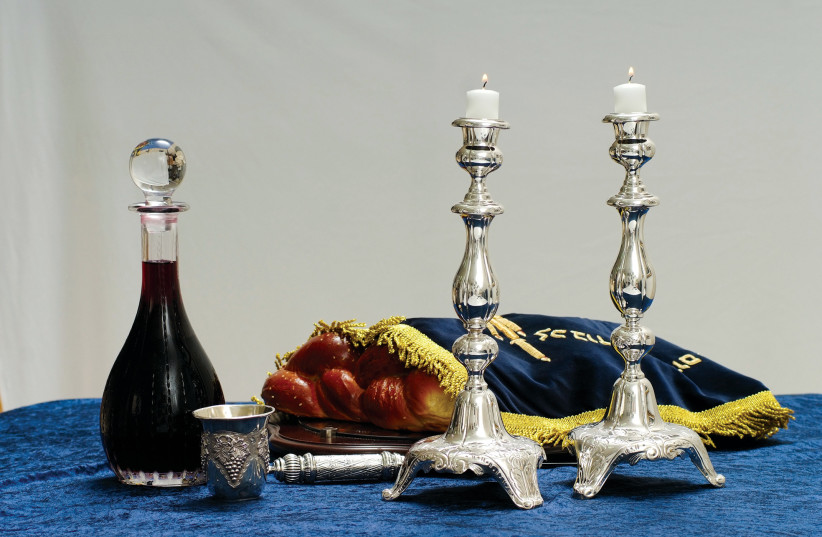In this week’s Torah portion, Beshalah, the children of Israel learn about Shabbat for the first time.
It was about a month after the exodus from Egypt, when they walked in the desert and the food they had taken with them was finished. They turned to Moses and Aaron with a complaint that expressed the despair that overcomes a person walking in a barren desert with no change in sight:
“The children of Israel said to them, If only we had died by the hand of the Lord in the land of Egypt, when we sat by pots of meat, when we ate bread to our fill! For you have brought us out into this desert, to starve this entire congregation to death” (Exodus 16:3).
“The children of Israel said to them, If only we had died by the hand of the Lord in the land of Egypt, when we sat by pots of meat, when we ate bread to our fill! For you have brought us out into this desert, to starve this entire congregation to death”
Exodus 16:3
The suffering and enslavement in Egypt suddenly seemed like pleasant history. At least there was food there, but here in the desert there is nothing. “Why did you take us out of Egypt to the desert?” the children of Israel called to Moses and to Aaron. “Is it so that we all die of starvation here?”
God’s answer to Moses came immediately. “Indeed,” said God, “this is a justified complaint. I took them out of Egypt, and I will take care of getting food for them in the desert, but it will be under two conditions.” Let us read the words of God:

“So the Lord said to Moses, Behold! I am going to rain down for you bread from heaven, and the people shall go out and gather what is needed for the day, so that I can test them, whether or not they will follow My teaching. And it shall be on the sixth day that when they prepare what they will bring, it will be double of what they gather every day” (Ex. 16:4-5).
Shabbat and the tests of the manna from heaven
God will bring them bread from heaven, which later in the parasha will be called manna. The children of Israel will not suffer from hunger in the desert anymore.
On the other hand, the manna will give rise to a double test: a daily test, “and gather what is needed for the day.” The manna will not be kept from one day to the next. Every day, the children of Israel will come out and collect manna from the desert, but they will not be able to take care of tomorrow’s needs. The second test is the opposite: Every Friday, they will gather mishne (twice the amount of manna) and prepare the food for the next day, Shabbat.
Later in the story, we read about the difficulty of these two tests. There were people who tried to keep manna for the next day, and the manna became worm-infested and spoiled. And there were those who went out on Shabbat morning to gather manna from the desert, even though they were told to prepare for Shabbat on Friday.
In commemoration of the double amount of food that the children of Israel gathered for Shabbat, we place on the Shabbat table lehem mishne, two breads or challot. It is a symbol of the well-being and abundance that we have been privileged to receive.
The first encounter with Shabbat was when the children of Israel were instructed to prepare Shabbat food on Friday. To this day, one of the most prominent experiences among Shabbat-observant Jews is the preparation of food on Friday and the non-preparation of food on Shabbat. In many homes, Friday is devoted to cooking and baking, sometimes in large quantities, with guests or needy people in mind; while on Shabbat, the experience is that the food seems to appear on its own. On Shabbat, the kitchen is not an arena of activity other than as a site for arranging and serving the food.
THE EMPHASIS on preparation leads us to observe its nature. A well-known hassidic proverb says that “The preparations for the mitzvah are greater than the mitzvah.” This is, of course, an exaggeration, but it expresses a profound idea. When we work hard and prepare for an event, we pay attention to it. It makes the goal we are working toward more precious, and we feel more emotionally invested.
Preparations for Shabbat are not only a technical matter resulting from the prohibition on cooking and baking on Shabbat. They are a goal in and of themselves. So much so that the Talmud tells of Shammai the Elder, one of the greatest sages in the Land of Israel in the first century BCE, who “all his days would eat in honor of Shabbat. If he found a fine-looking animal, he would say. ‘This is for Shabbat.’ If he would find a finer one, he would put down the first one and eat the second.” Throughout the week, Shammai was busy preparing for Shabbat, and every good and beautiful thing he saw would be purchased in honor of Shabbat.
When we want the light of Shabbat to radiate on all days of the week, the sanctity of Shabbat to affect the rest of the weekdays, we can realize this by preparing ourselves qualitatively for Shabbat. The thought of Shabbat and the effort invested in honor of Shabbat bring to the days of the week the calmness of Shabbat, the sanctity of Shabbat, and the joy of Shabbat. ■
The writer is rabbi of the Western Wall and holy sites.
